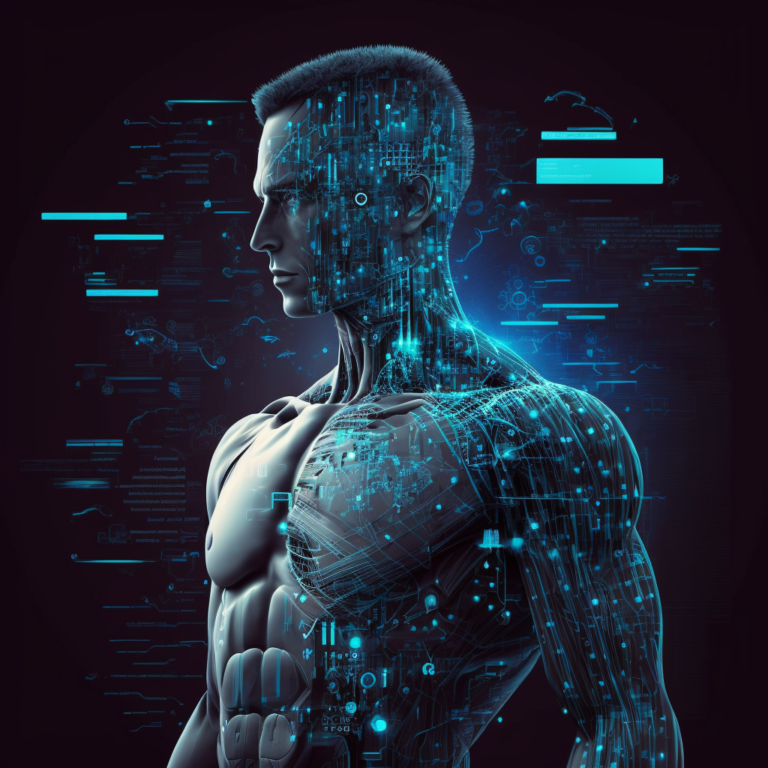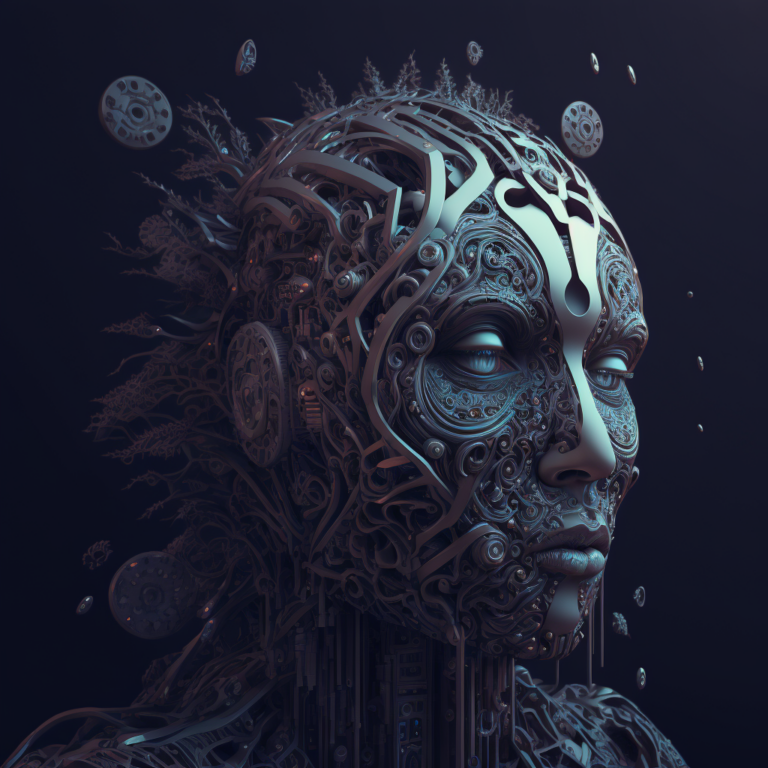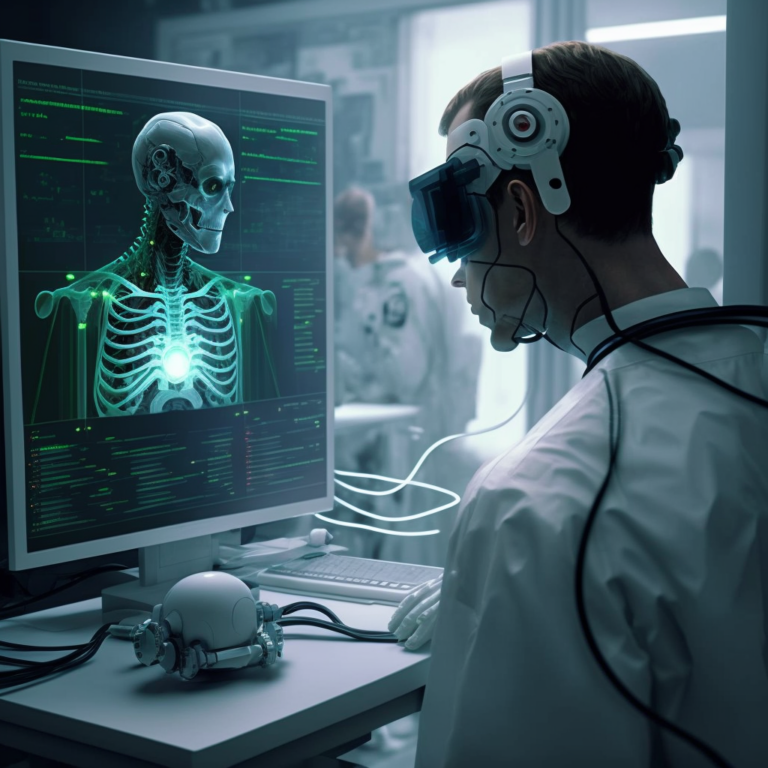ChatGPT: A state-of-the-art language model developed by OpenAI
ChatGPT: A state-of-the-art language model
Developed by OpenAI, ChatGPT has the ability to generate human-like text, respond to questions, and carry out complex natural language processing tasks. This revolutionary technology has the potential to transform the way we interact with computers, making them more accessible, intuitive, and personal. In this article, we will explore why the future is bright with chatGPT and how it will change the way we work, learn, and communicate.

Improving customer service
ChatGPT has the potential to revolutionize the way businesses interact with their customers. With its advanced natural language processing capabilities, chatGPT can understand customer inquiries and respond in a human-like manner, providing instant support and guidance. This level of customer service can lead to improved customer satisfaction, increased brand loyalty, and lower operational costs. Companies can leverage chatGPT to automate customer support processes, freeing up time and resources for their customer service teams to focus on more complex and strategic tasks.
Moreover, chatGPT can also provide 24/7 support to customers, eliminating the need for companies to staff customer service representatives around the clock. This can be particularly beneficial for businesses that operate globally, as chatGPT can provide support in multiple languages and respond to customer inquiries at any time, regardless of time zone differences.
Enhancing Language Learning
Language learning can be a challenging and time-consuming process, but chatGPT has the potential to make it more engaging and interactive. With its ability to generate human-like text, chatGPT can provide language learners with a more immersive learning experience. The technology can also provide instant feedback and support, helping learners to identify and correct mistakes in real-time. This can lead to improved language skills, increased confidence, and a more effective learning experience.
Moreover, chatGPT can be integrated into language learning applications, allowing learners to practice their language skills in a conversational setting. This can help to simulate real-life scenarios and give learners a more authentic experience, helping them to prepare for real-world communication.

Improving Accessibility
ChatGPT has the potential to make technology more accessible for everyone, regardless of their ability. For example, the technology can be integrated into assistive devices, such as text-to-speech software, to provide users with a more intuitive and human-like interface. This can help to break down barriers and make technology more accessible for people with disabilities, improving their experience and empowering them to take advantage of the benefits of technology.
Additionally, chatGPT can also be integrated into accessibility applications, such as speech-to-text software, to provide users with more accurate and reliable results. This can help to make technology more accessible for people with hearing or speech impairments, improving their experience and allowing them to fully participate in the digital world.
Transforming the Workplace
ChatGPT has the potential to transform the way businesses operate and improve the efficiency of their workforces. The technology can be integrated into business processes, such as HR and payroll, to automate routine tasks and free up time for more strategic work. This can lead to improved efficiency, reduced costs, and a more productive workforce.
Moreover, chatGPT can be used to provide employees with instant support and information, making the workplace more agile and responsive. For example, chatGPT can be integrated into an organization’s intranet or internal communications system, allowing employees to access information and get answers to their questions quickly and easily.
Improving Accessibility
ChatGPT has the potential to make technology more accessible for everyone, regardless of their ability. For example, the technology can be integrated into assistive devices, such as text-to-speech software, to provide users with a more intuitive and human-like interface. This can help to break down barriers and make technology more accessible for people with disabilities, improving their experience and empowering them to take advantage of the benefits of technology.
Additionally, chatGPT can also be integrated into accessibility applications, such as speech-to-text software, to provide users with more accurate and reliable results. This can help to make technology more accessible for people with hearing or speech impairments, improving their experience and allowing them to fully participate in the digital world.
Improving Healthcare
ChatGPT has the potential to improve healthcare. The technology can be integrated into electronic health records, allowing clinicians to access and update patient information in real-time. This can lead to improved patient outcomes, reduced errors, and a more efficient healthcare system. Additionally, chatGPT can be used to provide patients with instant support and information, improving their experience and helping them to take control of their health.

In conclusion
In conclusion, the future is indeed bright with chatGPT, as the technology has the potential to transform multiple industries and improve many aspects of our lives. From improving customer service, enhancing language learning, and increasing accessibility, to transforming the workplace, and revolutionizing healthcare, chatGPT has the potential to make a positive impact in many areas.
Its advanced natural language processing capabilities and ability to generate human-like text make it an incredibly versatile technology that can be integrated into a wide range of applications. This has the potential to improve the customer experience, make information more accessible, and increase efficiency across multiple industries.
The future of chatGPT is also very promising, with continued advancements in artificial intelligence and machine learning, the technology is sure to become even more powerful and capable in the years to come. This means that the possibilities for chatGPT are virtually limitless, and the technology will continue to play an increasingly important role in our lives in the future.
In short, chatGPT is poised to revolutionize the way we interact with technology, making it more intuitive and human-like. Its potential to improve many aspects of our lives and transform multiple industries make it an exciting technology to watch, and the future is indeed bright with chatGPT.
So, whether you’re a customer looking for instant support, a language learner looking to improve your skills, or an employee looking for a more productive workplace, chatGPT has the potential to make a positive impact in your life. With its incredible versatility, advanced capabilities, and exciting future, chatGPT is a technology to watch and one that will play a major role in shaping our future.